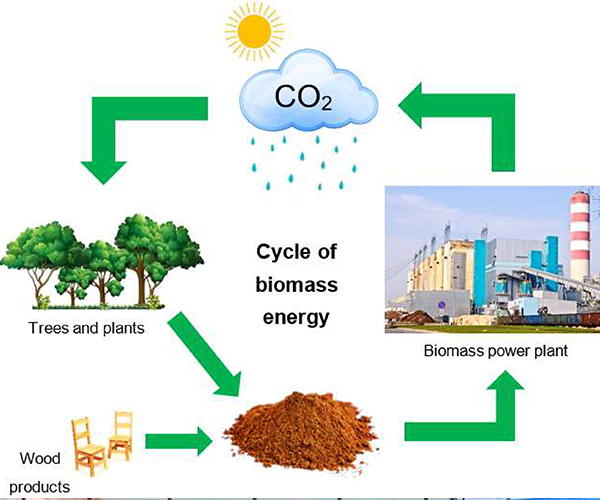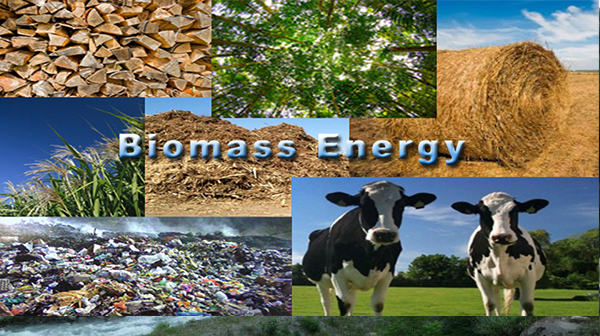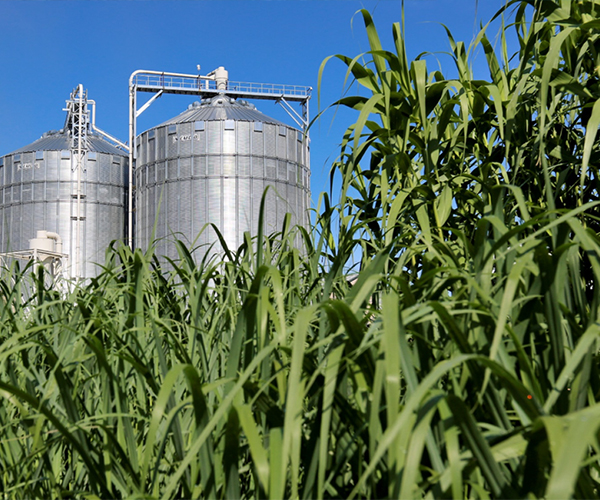Renewable Energy from Biomass
As the world transitions to sustainable energy sources, biomass power generation has emerged as a viable solution to meet growing energy demands. Biomass energy utilizes organic materials such as agricultural waste, forestry residues, and other biodegradable matter to produce electricity and heat. This renewable energy source offers an eco-friendly and cost-effective alternative to fossil fuels, reducing carbon emissions and enhancing energy security.
Advantages of Biomass Energy
1. Renewable & Sustainable – Biomass energy is derived from organic materials that can be replenished over time, ensuring a sustainable energy supply.
2. Carbon Neutral – Biomass energy significantly reduces greenhouse gas emissions by utilizing organic waste materials that would otherwise decompose and release carbon into the atmosphere.
3. Waste Reduction – Biomass power plants help manage agricultural and industrial waste by converting it into usable energy.
4. Reliable Energy Source – Unlike solar or wind energy, biomass power generation is not dependent on weather conditions, ensuring a stable power supply.
5. Economic Benefits – Biomass energy promotes rural development by creating jobs in fuel collection, processing, and power plant operation.
Applications of Biomass Energy
• Electricity Generation – Biomass power plants generate electricity by burning organic materials to produce steam, which drives turbines.
• Industrial Heat & Power – Many industries use biomass as a fuel source for heating and cogeneration purposes.
• Residential Heating – Biomass-based heating systems provide an efficient and renewable alternative for home heating.
• Transportation Fuels – Biomass can be converted into biofuels such as ethanol and biodiesel for transportation.
• Waste Management – Biomass energy contributes to efficient waste management by repurposing organic waste into useful energy.
Challenges & Solutions
• Feedstock Availability – Biomass energy depends on a steady supply of organic materials. Sustainable forestry and agricultural practices ensure a consistent feedstock supply.
• High Initial Costs – While biomass power plants require significant upfront investment, government incentives and technological advancements are making them more affordable.
• Emissions Control – Biomass combustion can release pollutants, but modern emission control technologies help mitigate environmental impact.
• Efficient Conversion Technologies – Advancements in gasification, anaerobic digestion, and pyrolysis improve the efficiency of biomass energy conversion.
M-Tech: A Leading Biomass Energy Solution Provider
M-Tech is a premier company specializing in providing comprehensive solutions for biomass energy generation projects. With expertise in system design, installation, and maintenance, M-Tech ensures the seamless implementation of biomass energy systems tailored to meet diverse energy needs.
Key Services Offered by M-Tech:
• Customized Biomass Solutions – M-Tech designs and implements tailored biomass energy systems for residential, commercial, and industrial applications.
• Turnkey Project Management – Managing all aspects of biomass power generation projects, from feasibility studies to plant commissioning.
• Advanced Biomass Combustion Systems – Utilizing high-efficiency boilers, gasifiers, and anaerobic digesters to maximize energy output.
• Biofuel Production Solutions – Supporting the production of ethanol, biodiesel, and biogas for various energy applications.
• Waste-to-Energy Solutions – Converting organic waste into clean, renewable energy while promoting sustainable waste management.
• Maintenance & Support – Providing long-term monitoring, performance optimization, and system upgrades.
• Regulatory & Compliance Support – Assisting in obtaining permits, government incentives, and compliance with environmental standards.
M-Tech is committed to revolutionizing the biomass energy sector by delivering innovative, efficient, and sustainable energy solutions. With a strong focus on technological advancements and customer satisfaction, M-Tech continues to lead the way in renewable energy transformation.
Future Prospects
With ongoing research and technological advancements, biomass energy is expected to become even more efficient and sustainable. The integration of smart grid technologies, AI-driven energy management, and hybrid renewable energy systems will further enhance the viability of biomass power, making it a crucial component of the global energy transition.



